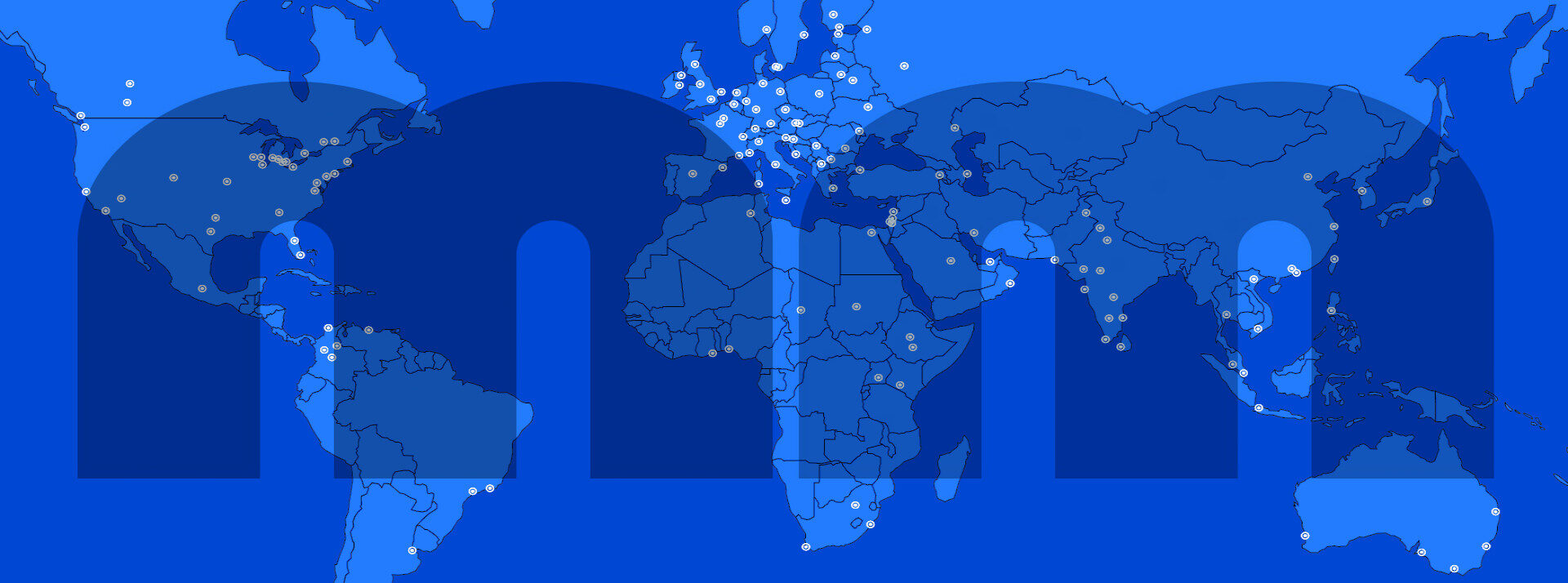Event report | Made by China: Chinese mobile companies going abroad
Posted on: July 22, 2008 – Filed under: Beijing
Despite the new Olympic traffic regulations, a dynamic audience converged to OrangeLabs for this 21st Mobile Monday Beijing event. We invited Chinese mobile entrepreneurs to learn from their experience of entering foreign markets, and came home with a few surprises and interesting ideas. Below is a summary of the discussions, enjoy!
Panelists
Mr. Alex Liang, CEO, Pica.com | Mobile IM
Mr. Yu Dong, CTO, Yicha | Mobile search
Mr. Jerry Lee, CEO, PP.cn | Mobile community
Mr. Xin Ye, CEO, Casee.cn | Mobile advertising
Mr. Haila Wang, CTO, OrangeLabs (could not join and was represented by his colleague)
Moderator
Mr. Benjamin Joffe, +8* | Mobile Monday
Some background
CASEE > mobile ad. Network, and for mobile content publishers (provide revenues)
For better Mobile internet experience.
PP.CN > founded in 2004. Entertainment on mobile (mobile friend-making). Also work with YICHA to attract customers from Japan.
YICHA > founded in 2004. Mobile Services for QQ and News Platforms and other 2000 websites. In 2006, Yicha entered the Japanese Market.
PICA > Started in September 2004, IM for mobile phones with social networking services on top of IM service. Social networking communities. Partnership with MSN helped for outside the mainland such as Hong-Kong, Macao…etc. Exporting services to other Asian countries. Revenues from advertisements.
1. Why go abroad?
CASEE > It is part of the investment decision with investors (Casee has investors from the UK). Casee provides its platform to partners and runs its own operations in China.
PP.CN > The differences between China mobile ads market and Japan mobile ads market is that it is easier to make revenues from the Japanese market. The audiences of the two markets are different; however, seeing that there is already a facilitated internet mobile service of Japan, it is easier to make money from mobile internet services in Japan.
YICHA > Founded in 2004. Provide mobile search service for QQ and Ucfly and other 40,000 websites. In 2006, Yicha entered the Japanese Market. Looking at the global development, the Japanese market is great. In the Japanese mobile search market, the main competitors are only Google and Yahoo, there are not many local companies to compete with, which offers opportunities with companies with good technologies and services.
PICA > For Pica, going abroad means: ‘More Value and More Opportunity’. When you have a good technology and usage companies are valued much higher overseas by capital markets and investors. Therefore, if you operate advanced applications, there could be an opportunity to add value to the company by expanding overseas.
ORANGE > In China, there’s lot of good technologies and applications that could benefit Orange group. Orange has launched mobile branches in China only a few years ago to bridge Chinese and European mobile service applications.
2. Finding the right people
+8* > How to find and evaluate the people to hire or already hired from abroad? What are your experiences regarding this personnel recruitment processes?
PICA > Identifying the right people and learning the local market characteristics to adapt the product are two difficult points.
We also faced a few problems 1) Finding a right partner 2) Negotiating with the people who are known to be the ‘right’ people (as they sometimes want more ownership) 3) Finding the local support, which are tied with resources problem (both money and people). Particularly, it was hard to find the people who are good at communicating.
However, I would say our proven product and technology has facilitated the process along the way in communication and negotiation because our partners needed something similar to Chinese market that we have experienced of operating.
YICHA > Our Japan CEO has 10 years of advertising and local launching experience in Japan, and our Japanese investor Hikari Tsushin helped to identify him as well as other key team members. As a result, it was relatively easy for Yicha to start and to manage.
PP.CN > In the case of SNS and communities, there is a fairly strict examination procedures for keywords in Japan. To deal with this, we hired several staff members. We have products and technologies supported from China, operation team, personnel resources that have more than 5 years of experience. Specifically, our good resources for gaming have been useful to localize in Japan and globalize. Lastly, we try to seek potential employees from the overseas students, and we have good Japanese speakers as staff members, so no real problem in communicating. We talk around 5 hours on Skype every day with our Japan team.
3. Financing the trip
+8* > Was funding for the trip part of the deal? How did you make it a good business case?
PICA > We are making money and business itself is profitable. Revenues from outside China are 30% of the total revenues. We received funding from VCs even before overseas operations generated revenues so we had enough money/revenues to support the development.
YICHA > Yicha had a lot of experience in Japan. Before we entered the Japanese Market, we had enough financing to support the business. We estimate our revenues should reach about 20 million dollars next year.
PP.CN > Our case is similar to that of Yicha. We didn’t spend much money since it was not needed. The Chinese market is not very mature, but Japan has a mature and easy money-making market.
4. Biggest hurdles
+8* > What are the things that you didn’t anticipate during the operation such as launching a service…etc.?
Particularly to Orange: What are the results so far? Is it easy for Chinese market to be successful?
ORANGE > This year, we have a good case of a Chinese application brought to Europe via Orange. Those cases need to be publicized more to motivate Chinese companies to expand. We are also putting together an early stage investment capability and we offer the ability to companies to test applications in Beijing on a live UK network.
CASEE > The hardest part is the odd hours when working with UK due to time difference, but with enough Skype calls things work fine.
PP.CN > The difficult issue about internalization is communication. Sony and others educated the Japanese market so we have to strengthen the localization taking this history and local tastes into account. On mobile, services like Mobile Game Town from the company DeNA offers personalization such as clothing, backgrounds, and other features that we need to integrate. Therefore, we have a local team with a Japanese CEO who is responsible for Japan localization.
YICHA > Knowing that reacting fast to the changes is really important, we have the product leader(s) to go to Japan every month.
PICA > We found that it is important to find the right partner, especially make sure that interests are aligned.
5. “I wish I knew”
PICA > I think that passion and trying are the key. However, the first time might not be able to give you the ideal outcome that you expected!
YICHA > It is important to find the local team of China in order to find the suitable users in Japan. We researched and conducted surveys to identify what were their tastes in music, entertainment features, etc. Therefore, we suggest you to have local resources as we spent much time to conduct sustainable development both inside (China) and outside (Japan). Also, you need to be very prudent when going abroad.
PP.CN > I think that the company should already have gone through several competitions within the country and become a mature and healthy one before going abroad or thinking of going abroad. Mistakes abroad are much harder to correct, therefore, you need to check the plan, detailed processes and results. I believe the most important traits are being both prudent and confident.
CASEE > Our case is easier than Yicha and PP.CN because we are “reverse localization”. Our task is to develop a platform in China; therefore, it would probably be easier for us to meet the end users’ needs than Yicha and PP.CN.
Q&A
QUESTION 1 > How did you find the ‘right’ people. Was it through head hunters/connections? Another question is about the ways to get revenues.
PICA > Most companies here have received investment. In some cases, your VCs can help you. Other ways are to go to conferences, meet local partners and local offices for large companies, like Orange. Huawei is another channel that can help you as they are looking for services to bundle with their platforms.
YICHA > For revenues, mobile search is relatively mature in Japan. The business model is similar to that of internet search engines.
PP.CN > In regards to finding the correct personnel, your friends could become your partners! As for revenues, communities are quite mature in Japan. Although Facebook has a great service they have issues about revenues. Japanese market is more about mobile gaming to attract users. Mobile SNS in Japan generate revenues by selling virtual features such as Avatars.
QUESTION 2 > What do you think are the difference between the users in Japanese and Chinese markets?
PP.CN > Japanese users are young. They were born in the 1990s. Maybe due to the lack of space in Japanese houses, 13 to 18-year-old audience do not have their own computers in their rooms. Even if they have, the computer is around their parents. Therefore, they rely and spend much time on the mobile phones which dominates very much of their daily life (for entertainment, living…etc.).
Also, opposite spending habits are found between Japanese and Chinese users. Japanese would spend a lot of money for new and quality products. Often, buyers think that the more expensive the product is, the more reliable it is (no viruses,..etc.); however, this is not the case in China.
QUESTION 3 > What are the advantages of Chinese entrepreneurs in Japan?
PP.CN > Chinese entrepreneurs in Japan are good at identifying, solving, and learning from the experiences they had in the past. Also, the Chinese working style is more relaxed. In Japan, many staff would not leave their offices until 10pm because they do not feel comfortable leaving or would say “I am sorry to leave so early while you are still working”.
YICHA > I’d like to add something based on our experience. In terms of the local resources, the Japanese employees get many benefits when working with large companies, so Japanese are often willing to work their whole life with the same company, which makes it difficult to hire them. In terms of advantages, the easy communication both in time zones and distance (only 3 hours away) could be another advantage.

